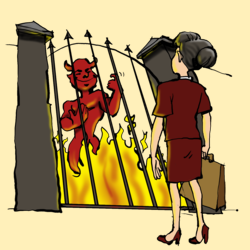 The proportion of churches which are growing in Australia, the US and other western countries is small compared with the proportion of those which are shrinking. Many of those which are growing – at least those which we hear about – seem to have some distinctive feature which makes them a bit odd. Some overemphasise the “prosperity gospel”; others overpromise and underdeliver on miracles; still others preach a strident form of ultra-conservatism. Which leads to the question: Is it possible in today’s climate to have a growing “normal” church which preaches orthodox Christianity?
The proportion of churches which are growing in Australia, the US and other western countries is small compared with the proportion of those which are shrinking. Many of those which are growing – at least those which we hear about – seem to have some distinctive feature which makes them a bit odd. Some overemphasise the “prosperity gospel”; others overpromise and underdeliver on miracles; still others preach a strident form of ultra-conservatism. Which leads to the question: Is it possible in today’s climate to have a growing “normal” church which preaches orthodox Christianity?
Redeemer Presbyterian Church in New York seems to be a good example of a “normal” church which has grown rapidly since it was started 17 years ago, and which has planted a large number of other churches. According to a Newsweek article, the successful “formula” is just “orthodox Christianity and challenging preaching, with an emphasis on social justice and community service”.
The minister of Redeemer Presbyterian Church, Rev Tim Keller, says that churches in major cities should have as equal as possible emphases on:
a) welcoming, attracting, and engaging secular/non-Christian people;
b) character change through deep community and small groups;
c) holistically serving the city (and especially the poor) in both word and deed;
d) producing cultural leaders who integrate faith and work in society; and
e) routinely multiplying into new churches with the same vision.
HT: steveaddison.net








